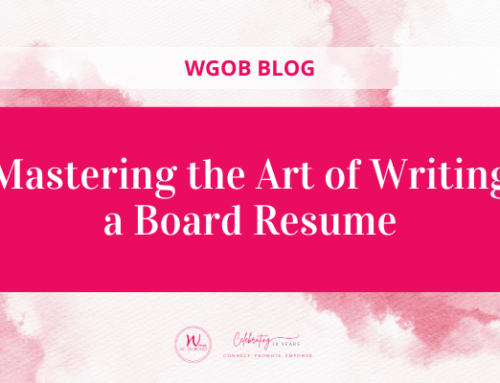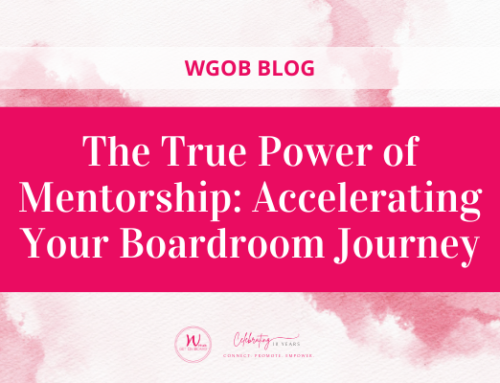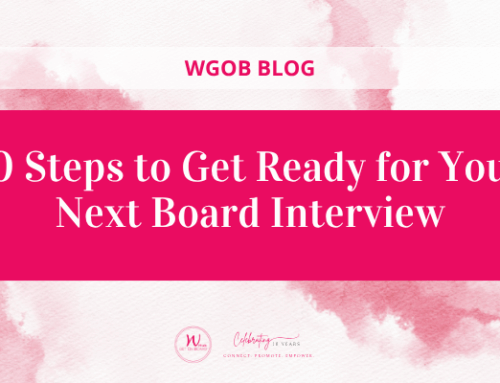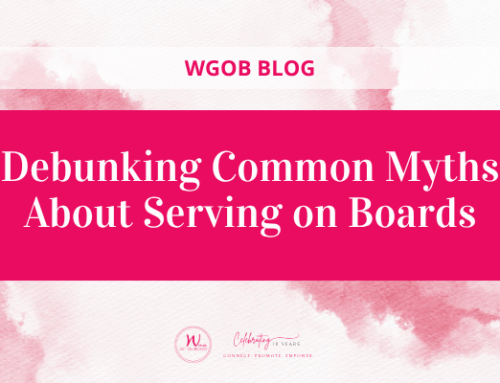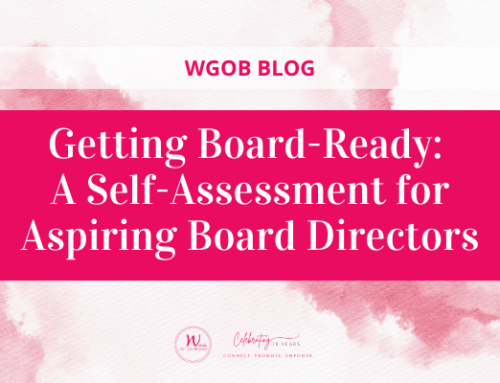
Kim West is the President of Halifax-based Royer Thompson Management & Human Resources Consulting. She made a deliberate decision to transition into talent management after a 25-year career in communications. Kim is a director of Medavie Inc., Verity International, Chair of Medavie Health Foundation and director of the Institute for Research and Public Policy. She has previously served as director of NATIONAL Public Relations and Vice Chair of the Board of Governors of St. Francis Xavier University.
What led you to get into Board work?
I began in my late 20’s. It was always an important part of my career interests. I started with professional and business associations, and then moved on to hospitals and universities.
I’ve always felt it makes me a better practitioner because I have context of what boards are considering in growing organizations. It’s very easy to be siloed. Board work gives you a better perspective on how various functions across organizations connect. I highly recommend that women engage in Board work as early as possible in their career.
What guidance do you have for young people starting their Board journey?
Professional associations are an obvious way to start. Start on a committee. There are multiple ways to get involved in your local chamber of commerce. Look at sports and cultural activities or condo Boards–something personal to you that you’re interested in. Boards need younger perspectives. Do the research on who the Board members are, and their complement of skills.
Look for an opportunity to present to the Board of your employer’s organization. Whether it’s a project or a strategy, embrace that opportunity. In your career development conversation with your manager, identify that as a goal.
People underestimate the time commitment of Board work. When you are young, you are often at a particularly busy stage in your life with family and career pressures. Taking one Board and developing a leadership role on it is preferable to serving on many Boards with no leadership.
Know when to speak and when to listen. New Board members want to show value. They engage on every topic and ask a lot of questions without having a good understanding of the Board and its full annual cycle. You’ll make your real impact through an extended contribution. The Board’s ability to function as a whole is more important than any one member’s contribution. A highly functioning team is a more successful team. Be mindful of that.
What is your perspective on formal Board training?
I believe in lifelong learning. I have a PR background, not a business degree. I was mindful that I needed to develop business and financial skills. I took a financial course for non-financial people. This helped me understand some key elements of Board oversight. Courses are a good way to start the journey. You can dabble in training even if you can’t commit to a Director accreditation program. You can take specific courses on not-for-profit Board governance; audit and risk or other specific subjects. Become a member of an organization that promotes women on Boards such as the Director’s College, Women Get On Board (WGOB), the Institute for Corporate Directors (ICD) or the International Women’s Forum (IWF).
Do you have advice for people in smaller markets who want Board experience?
If you’re from a smaller center, the onus is really on the individual to become knowledgeable about Boards and vigilant about developing and matching skillsets.
Smaller markets do make Boards more accessible. Be proactive about local engagement. Go listen at open Board meetings in the public sphere to get an idea of how they work.
Geography isn’t always a limitation. The federal government is always looking for diverse candidates through their appointment secretariat. There are national Boards looking for diverse perspectives and specific skillsets. Look at the complement of people on each Board and see whose appointment is expiring soon. And, from a professional growth perspective, I really encourage people to look outside their community. In my experience and in talking with others, it’s a very enriching experience.
Can you share your perspective on the Board’s role in succession planning oversight?
Until this point, the pool of Board members has been drawn almost exclusively from CEOs and CFOs. Those competencies are critically important, but leadership skills matter in today’s economy. You also need people who have a talent orientation. Everybody assumes that they know that space. Every C-suite leader has managed people, so they feel that it’s part of what they do–but having people with structured experience in HR brings a different perspective, with more tools in the tool kit. There is a discipline; an art and a science to talent management and communications. These areas are important.
Your thoughts on building awareness of PR as a strategic skillset for Boards?
My first ICD course was purely financial. However, the biggest real risks were reputational risks which required experience that is as important as managing other risks. Missed opportunity risk and the risk of failure to innovate is a key strategic and reputational risk for many organizations. The onus is on the PR practitioner to identify and highlight their impact on an organization.
A practical example that combines HR and PR skillsets from a strategic Board perspective is the #MeToo movement. In the past, if the CEO was doing an excellent job delivering financials, they would be well regarded and supported by the Board and other key stakeholders. Today, if there is an issue involving harassment or inclusiveness, there will be more discussion about whether that individual is the right fit for the organization. Boards have to respond to this by ensuring that the organization has appropriate policies, procedures and training. Typically, there is a trigger incident that the Board has to navigate before the policy has been developed and implemented. Those conversations are more thoughtful and productive when there are experienced people around the Boardroom table.

